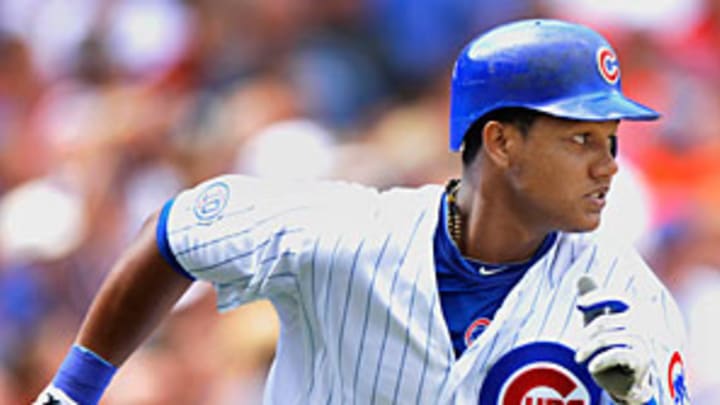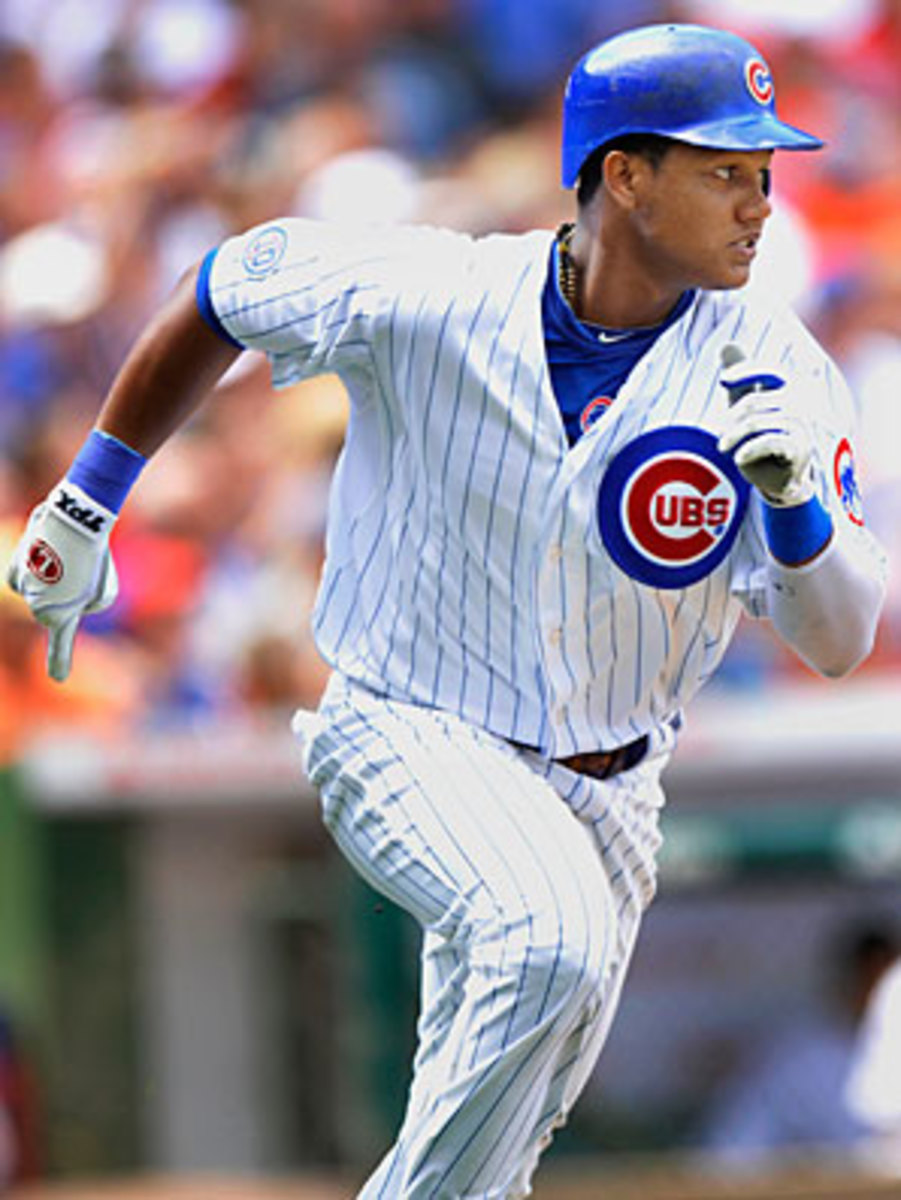Castro's deal likely to pay off for Cubs

The Cubs' latest rebuilding plan will center around Starlin Castro after all. (AP)

Beyond the arrivals of Theo Epstein as club president and Jed Hoyer as general manager, and some occasionally well-pitched games from Ryan Dempster, Matt Garza and Jeff Samardzija, Cubs fans haven't had a whole lot to cheer about lately. With a 49-78 record overall, and 6-19 this month, thee North Siders are simply playing out the string while evaluating which players under their control are worth keeping around during their rebuilding process. At one point earlier this summer, Epstein proclaimed that no player on the roster was untouchable when it came to potential trades, not even 22-year-old shortstop Starlin Castro. But on Tuesday, Epstein made it clear that he intends to keep his two-time All-Star around, finalizing a seven-year, $60 million contract with Castro.
For club-friendliness, this is a deal that's basically on par with that of Pirates centerfielder Andrew McCutchen, who signed a six-year, $51.5 million contract in March. McCutchen was 25 at the time, not 22, but like Castro, he was a so-called "Super Two" player with enough big league experience to reach his first year of arbitration eligibility early. According to Fox Sports' Ken Rosenthal, Castro will receive a signing bonus of $6 million dollars, with the following breakdown for the rest of the payout:
Year | 2013 | 2014 | 2015 | 2016 | 2017 | 2018 | 2019 | 2020 |
|---|---|---|---|---|---|---|---|---|
Age | 23 | 24 | 25 | 26 | 27 | 28 | 29 | 30 |
Status | Arb1 | Arb2 | Arb3 | Arb4 | FA1 | FA2 | FA3 | FA4 |
$ (Millions) | $5 | $5 | $6 | $7 | $9 | $10 | $11 | $16/$1* |
*Club option/buyout
The deal not only takes Castro through his four arbitration-eligible years but also the first three years of his eligibility as a free agent, with an option for the fourth year. Earlier this month, Epstein explained the rationale behind the deal. "If you’re going to give long term to a player, you want to make sure you have very few reservations about the talent and about the character," he told the Chicago Sun-Times. "You want to make sure it’s for the right years, the right ages, and in my opinion, you want to try to wrap up as many prime-age years as you can. You want to maybe let somebody else pay for the decline."
Castro's contract should amply cover those prime years, providing cost certainty at an affordable price. But where McCutchen has emerged as an MVP-caliber centerfielder, Castro still carries questions about his true talent level. Currently, he's hitting .276/.311/.418, and while his 12 home runs have set a career high, his rate stats are well off the .304/.343/.422 pace he set in 2010 and 2011. His 15.7 percent strikeout rate is the highest of his three years, while his 4.8 percent walk rate is his lowest, and his batting average on balls in play, which was .345 in his first two years, is down at .308.
Because of his relatively limited secondary skills, including an unimpressive 65.6 percent success rate in stealing bases, most of his offensive value is tied up in his batting average. His .259 True Average — runs per plate appearance, expressed on a batting average scale, with .260 as the league average — isn't spectacular. It ranks ninth among the 16 shortstops qualified for the batting title, though it is still 10 points above the major league average for shortstops. Overall, he has averaged 2.9 WARP per 150 games, which -- given the going rate of around $6 million per WARP -- equates to roughly $17 million worth of production per year on the open market. His contract averages out at around half that price, $8.6 million per year. It should be a bargain when it's all said and done.
Though his critics would disagree based upon his high error count, the consensus among fielding metrics is that Castro does add value with his defense, with the various measures placing him between two and six runs above average this season. But along with his errors (21 this year and 77 in his brief career), he has been prone to mentallapses that have drawn the ire of manager Dale Sveum. Even so, he has shown appropriate contrition for those lapses, and does appear to be learning from his mistakes.
How long Castro can remain at shortstop is one of the big questions in this deal; many talent evaluators feel as though he'll eventually be shifted, with Baseball Prospectus' Kevin Goldstein suggesting "[He'll] likely have to move left or right in the next three to five years," meaning second or third base. The Cubs have several well-regarded prospects who play on the left side of the infield, including Javier Baez (a 2011 first-round pick who's playing shortstop in High-A at age 19), Junior Lake (a 22-year-old playing short and third at Double-A) and Josh Vitters (a 22-year-old former first round pick from 2007 who was just promoted to the Cubs earlier this month, where he's playing alongside Castro). Even so, none of them appears likely to bump Castro anytime soon.
Castro is far from a finished product, but like fellow 22-year-old Giancarlo Stanton, he's laying the groundwork for a long career that could contain significant milestones and accolades. As BP's Sam Miller pointed out two months ago, the list of shortstops with at least 1,500 plate appearances through their age 22 season — which is all of 10 players long — includes four Hall of Famers in Rogers Hornsby (who later moved to second base), Travis Jackson, Arky Vaughan and Robin Yount, with Alex Rodriguez having built a Cooperstown-worthy career, and Alan Trammell with a strong but sadly overlooked case. Aside from Castro and the Rangers' Elvis Andrus, who also fits the bill, the other eight players from that group averaged another 1,716 games, 1,908 hits and 196 homers for the remainder of their careers.
Signing budding young stars to long-term deals that buy out their arbitration years is a sound team-buidling strategy. General managers have used such deals in recent years to lock up the likes of Ryan Braun, Evan Longoria, Grady Sizemore, Troy Tulowitzki, Justin Upton and Ryan Zimmerman at below-market rates, avoiding the adversarial relationship that comes with taking a player through the arbitration process. With the exception of Sizemore due to myriad injuries, those deals have panned out rather well for their teams, while providing a measure of security for their recipients. The Cubs have made a very reasonable bet that Castro can do the same.
